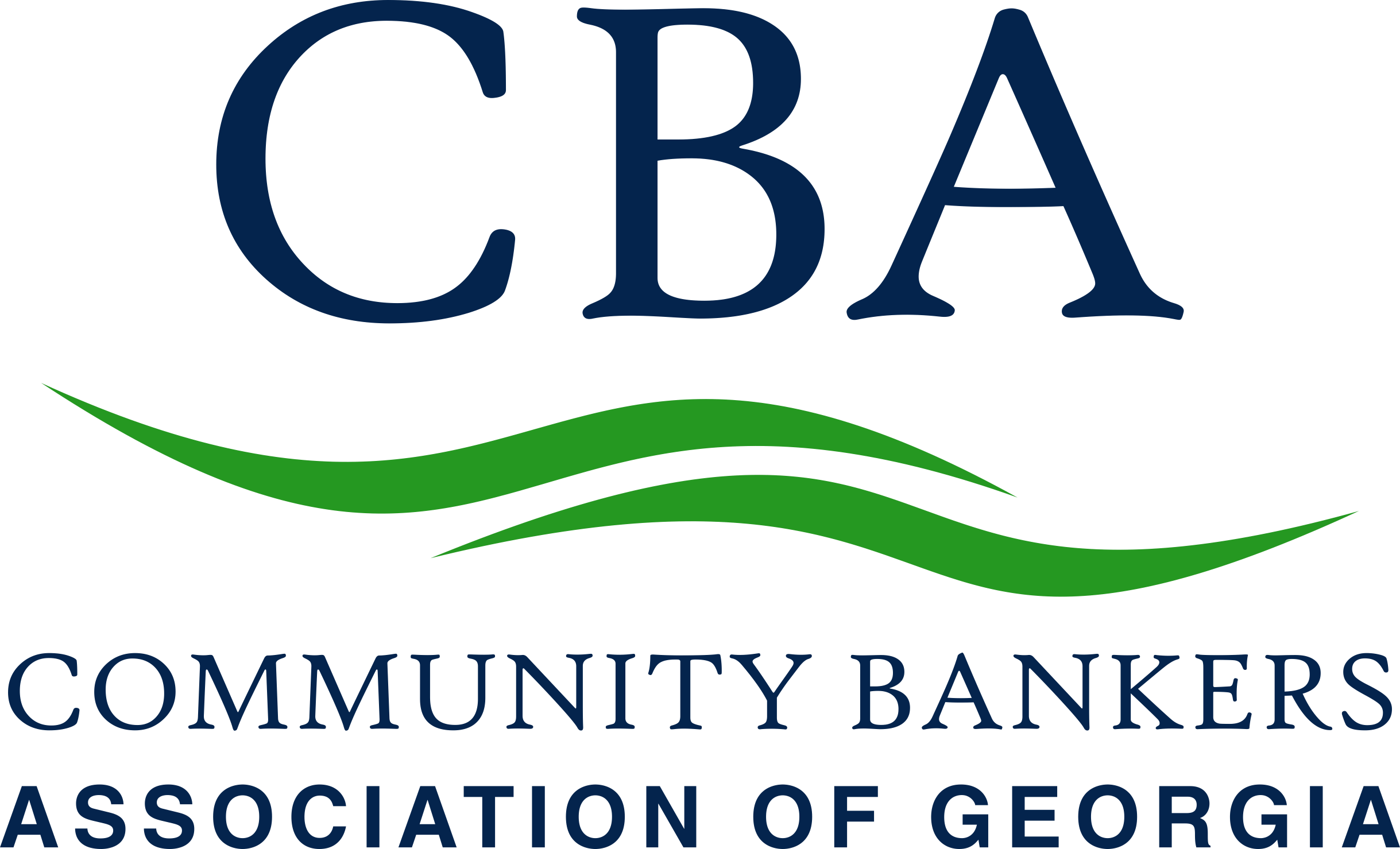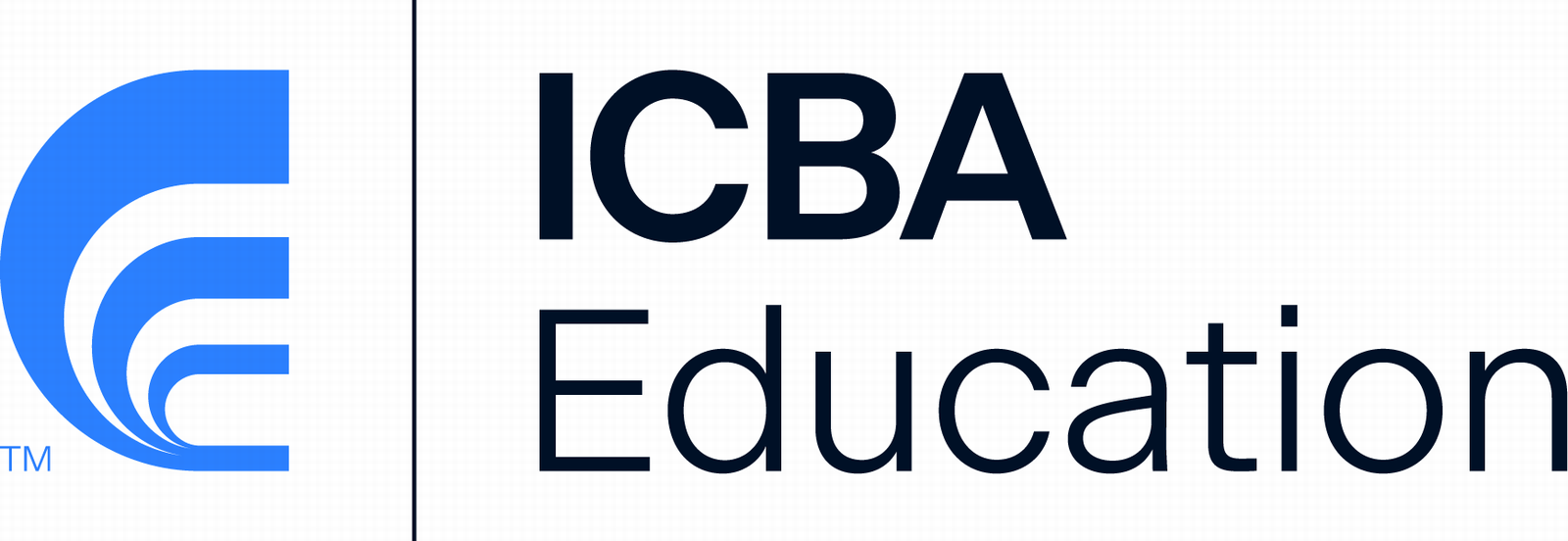Advocacy Update 2023 - Legislative Days 39-40
In this Issue:
Active Measures: Banking & Financial Products
Active Measures: General Business
Adjournment
In the early minutes of March 30, the General Assembly concluded the 2023 session. Lt. Governor Burt Jones and Speaker Jon Burns completed their first session as presiding officers of the Senate and House, respectively. Spirits were high as legislators, family, and staff members tossed shredded bills and debate calendars around the chambers.
Governor Brian Kemp now has forty days to review and act on the bills that passed the legislature. Those that did not make it to the Governor remain eligible for consideration again in the 2024 General Assembly.
The conclusion of session is just a temporary respite from legislative action. The House and Senate will delve into legislation that did not pass this year, in some cases doing so as part of an official study committee. Your Government Affairs Team will continue to engage as these policy issues are deliberated in the coming months.
Due to the frenetic nature of the final days of the General Assembly, it is common for dead legislation to find new life within other active bills. This report represents our best effort to accurately report on relevant legislation. A comprehensive legislative report is forthcoming, pending action by the Governor.
There are lots of ways to define success in a legislative session. Not all successes result in the passage of legislation. Some successes may be related to keeping amendments out of bills that would be detrimental to our industry or to testify against a bill and for that bill to remain on the table with no action taken. This session, there were numerous successes for our industry including the passage of the following bills:
- Department’s Housekeeping Bill (HB 55),
- Curing Defective Deeds and Other Instruments (HB 182),
- Notices to Beneficiaries (HB 91), and
- Offense of Money Laundering (HB 219).
Success also included keeping ESG language out of bills, stopping the Interchange discussion from progressing in the Senate, and amending other bills to allow CBA to remain neutral rather than opposed. A number of bills that we were monitoring failed to receive final action and will remain as active bills for the 2024 Legislative Session.
Active Measures: Banking and Financial Products
Notices to Beneficiaries (HB 91) Rep. Will Wade, R-Dawsonville
Senate adopted 50-0 on Mar-27
Eligible for Enactment by the Governor
Requires personal representatives to send notices to beneficiaries regarding the issuance of letters testamentary or letters of administration. Revises a definition regarding Uniform Transfer on Death Security Registration.
Curing Defective Deeds and Other Instruments (HB 182) Rep. Matt Reeves, R-Duluth
Senate adopted 52-2 on Mar-27; House agreed with the substitute with a vote of 166-9 on Mar-29
Eligible for Enactment by the Governor
The bill comes at the recommendation of the United States Eleventh Circuit Court of Appeals in Pingora Loan Servicing, LLC, v. Scarver (In Re: Lindstrom) and relates to the recording of deeds and other real property transactions, and revises the provisions for curing defective deeds and other instruments. The substitute offered by the Senate adds language from SB 292 regarding the nonjudicial foreclosure of time-share estates.
Offense of Money Laundering (HB 219) Rep. Scott Hilton, R-Peachtree Corners
Senate passed with a vote of 50-0 on Mar-27
Eligible for Enactment by the Governor
HB 219 provides for the venues for the offenses of money laundering and theft of money held in a financial institution.
C-PACER (SB 145) Sen. Shawn Still, R-Norcross
Lost for 2023, Eligible for additional consideration in 2024
As introduced, SB 145 prohibited local regulations that create differing standards for or distinguish between gasoline-powered leaf blowers from similar lawn equipment. On March 23, the House Government Affairs Committee amended SB 145 to include language from several other measures:
- HB 374, municipal deannexation of property
- HB 206, commercial property development authorities (C-PACER)
- HB 438, prohibits policies that ban utility service connections
- HB 92, EMC investment limitations in natural gas marketers
- An update to last year’s HB 1405, quasi-judicial zoning decisions
The House passed the measure with a vote of 103-67 on March 27. The bill bounced between the House and Senate as the hour grew late on the final day of session, presumably trying to move it to a conference committee so even more language could be tacked on. Ultimately that effort was not successful. However, both the amended SB 145 and all other standalone bills remain active for 2024.
Active Measures: General Business
Uniform Unsworn Declarations Act (HB 80) Rep. Rob Leverett, R-Elberton
House agreed to the substitute with a vote of 175-0 on Mar-29
Eligible for Enactment by the Governor
Provides that unsworn declarations have the same effect as sworn declarations in certain circumstances, including related to the offense of perjury. An amended version adds specific references to Puerto Rico, the US Virgin Islands, and other US territories.
Access to Medical Cannabis Committee (HB 196) Rep. Alan Powell, R-Hartwell
Lost for 2023, Eligible for additional consideration in 2024
Seven years ago, Georgia passed landmark legislation to allow patients suffering from a limited number of conditions to access medical cannabis products. The legislature established the Medical Cannabis Commission to oversee the licensing, in-state cultivation, production, manufacturing, and sale of low-THC oil products. Medical cannabis products remain unavailable to Georgia patients today because of delays and accusations of mismanagement during the licensing process.
As introduced, HB 196 requires the Medical Cannabis Commission to be subject to the Administrative Procedure Act and laws governing open meetings and open records. As the session advanced, the bill morphed and dissolved the Commission altogether, instead moving oversight to the Department of Agriculture. It allowed for additional licenses, arbitration, and mediation in an effort to settle ongoing litigation and provide speed to market of low-THC oil products.
Ultimately, a majority of lawmakers were not comfortable enough with the revisions, some of which were still being unveiled after late in the day on March 29. After passing the Senate and House with strong majorities on March 27 and early in the day on March 29, respectively, support waned and the Senate ultimately voted the bill down after 10pm on the final day of session.
Property Owners’ Association (HB 220) Rep. Rob Leverett, R-Elberton
Lost for 2023, Eligible for additional consideration in 2024
HB 220 provides for means of enforcement of condominium and property owners' association instruments, rules, and regulations; provides for compliance with, and means of enforcement of, covenants and instruments for certain planned subdivisions.
Criminal Interference with Critical Infrastructure (HB 227) Rep. Rob Leverett, R-Elberton
Senate adopted 52-1 on Mar-27; House agreed with the substitute with a vote of 169-0 on Mar-29
Eligible for Enactment by the Governor
HB 227 provides for the offense of criminal interference with critical infrastructure, defined as a "publicly or privately owned facilities, systems, functions, or assets, whether physical or virtual, providing or distributing services for the benefit of the public, including, but not limited to, energy, fuel, water, agriculture, health care, finance, or communication." The Senate amendment added railroads to the list.
Needs Based Financial Aid Program (HB 249) Rep. Chuck Martin, R-Alpharetta
Senate adopted 51-1 on Mar-27; House agreed with the substitute with a vote of 168-0 on Mar-29
Eligible for Enactment by the Governor
HB 249 revises definitions for needs based financial aid programs. The Senate substitute added language from SB 203 regarding tuition-free commercial trucking education program for veterans.
Projects of Regional Significance (HB 408) Rep. Bruce Williamson, R-Monroe
Senate passed with a vote of 43-6 on Mar-29
Eligible for Enactment by the Governor
HB 408 changes the sunset provision for the exemption for competitive projects of regional significance.
Income Taxes Paid at the Entity Level (HB 412) Rep. Bruce Williamson, R-Monroe
Senate passed with a vote of 48-1 on Mar-27
Eligible for Enactment by the Governor
HB 412 repeals a limitation on the types of partnerships that may elect to pay income taxes at the entity level.
Lis Pendens (HB 444) Rep. Matt Reeves, R-Duluth
Senate passed with a vote of 46-0 on Mar-29
Eligible for Enactment by the Governor
A lis pendens is a written notice that a lawsuit has been filed in superior court concerning a property’s title or ownership interest, potentially making the property less attractive to a buyer or lender. Once filed, the title is subject to the outcome of the lawsuit. HB 444 revises when an action may operate as a lis pendens.
IRC Update (HB 454) Rep. Shaw Blackmon, R-Bonaire
Lost for 2023, Eligible for additional consideration in 2024
Sec 1. IRC update. Sec 2. Automatic annual individual income tax rates. Sec 3. Dependent income tax deduction. Sec 4. Standard deduction. Sec 5. Eligible itemizers. Sec 6. Expand definition of 'force majeure' as it relates to large-scale projects. Sec 7. Effective dates.
Georgia Online Automatic Renewal Transparency Act (HB 528) Rep. Houston Gaines, R-Athens
Senate adopted 49-1 on Mar-29; House agreed with the substitute with a vote of 163-2 on Mar-29
Eligible for Enactment by the Governor
HB 528 regulates certain business practices that offer paid subscriptions or online purchasing agreements subject to automatic renewal or continuous service. It requires the ability to cancel the service online. It makes certain automatic online renewal offers and online continuous service offers unlawful and requires online businesses to obtain customers' consent prior to authorizing a charge to any debit card, credit card, or consumer's account with a third party.
Apex Doctrine (SB 74) Sen. Blake Tillery, R-Vidalia
Eligible for Enactment by the Governor
A June GA Supreme Court ruling rejected the apex doctrine, which protects high-ranking corporate and government officials from unwarranted depositions. Language recently added to SB 74 incorporates apex doctrine language in Georgia code.
The nuance of the apex doctrine language was a source of friction both between the House and Senate and among Republican lawyers in the Senate. Issues centered around the phrases “unique and extensive” scheduling demands and “large and complex” organizations. Republicans threw up procedural roadblocks to prevent additional amendments and after an hour of debate, the Senate “agreed” to the House version with many of the pro-legal reform GOP Senators voting against the measure.
House Rural Development Council (HR 488) Rep. Steven Meeks, R-Screven
Authorized by the House with a vote of 166-0 on Mar-27
This resolution reauthorizes the House Rural Development Council. While CBA has not been active in previous meetings, this could potentially be a good platform for CBA and its members to tout the benefits of community banks. Members of the committee would be undertaking a study of the conditions, needs, issues, and problems including loss of population, a deficiency in access to health care, aging infrastructure, diminished quality of educational opportunities, limited employment opportunities, inconsistent economic development opportunities, and lack of widespread economic growth.
Public Camping and Homelessness (SB 62) Sen. Carden Summers, R-Cordele
House adopted 99-76 on Mar-27; Senate agreed with the substitute with a vote of 36-20 on Mar-27
Eligible for Enactment by the Governor
SB 62 prohibits local governments from not enforcing ordinances intended to prohibit public camping, sleeping, or obstructing sidewalks. It requires the state auditor to review spending on homeless programs, including federal and local government expenditures. Hospitals and local governments are prohibited from intentionally transferring unhoused people to another jurisdiction unless there is a family member, support program, or other resources available to the person.
Spam Telephone Solicitations (SB 73) Sen. Blake Tillery, R-Vidalia
Lost for 2023, eligible for consideration in 2024
Current law prohibits a person from knowingly making or causing telemarketing calls to individuals on the Georgia Do Not Call List. SB 73 removes the “knowing” requirement and expands liability for violations to include class action suits and damages. Liability extends to the entity that made the telephone solicitation and/or the entity that caused the solicitation to be made.
As the clock approached midnight, Sen. Tillery motioned for the Senate to “agree” to the House’s changes. That was superseded by Sen. Bo Hatchett’s motion to further amend the bill which all but eliminated the possibility for final passage this year.
Disposition of Unclaimed Property (SB 103) Sen. Russ Goodman, R-Homerville
Senate agreed with the substitute with a vote of 43-4 on Mar-27
Eligible for Enactment by the Governor
SB 103 relates to the disposition of unclaimed property and provides for the handling of certain wills, specifically as it relates to instances when a will or trust instrument is included in a safe-deposit box.
Chiropractic Lien (SB 168) Sen. Rick Williams, R-Milledgeville
House passed with a vote of 170-4 on Mar-27
Eligible for Enactment by the Governor
SB 168 adds chiropractors to the entities that can file hospital liens.
Expanding Georgia’s Workforce Study Committee (SR 275) Sen. John Albers, R-Roswell
Authorized by the Senate with a vote of 43-1 on Mar-27
SR 275 creates the Senate Study Committee on Expanding Georgia's Workforce.


